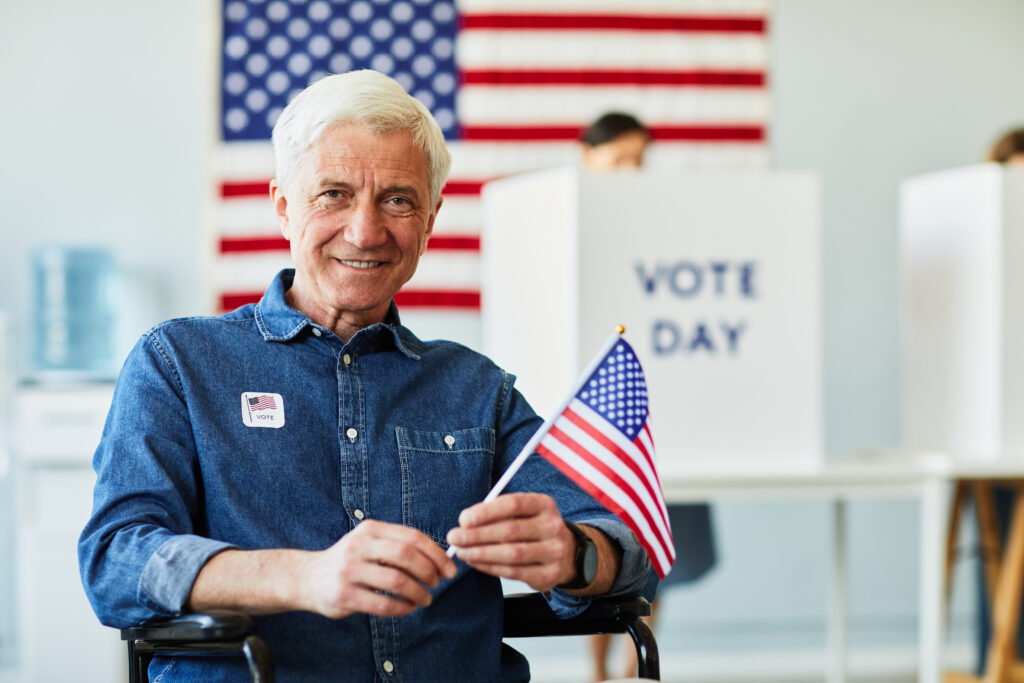
Resident Voting Rights: Is Your Facility Meeting Its Obligations?
Residents in long-term care facilities face unique challenges exercising their basic rights compared to people living in the community, including participating in national, state, and local elections. As we gear up for the presidential election this November, long-term care providers should review their obligations to assist residents in this process and be prepared to ensure that their residents can freely exercise their right to vote.
Federal regulations require long-term care facilities to ensure that residents can exercise their rights as citizens of the United States, including the right to vote, without interference. As such, administrators and staff members may not impede a resident’s right to vote in any way, regardless of their perceptions or beliefs about a resident’s physical or mental ability to do so. Confusion may arise where a resident is under a legal guardianship, whether under Article 17-A of SCPA or MHL Article 81. While individuals under a guardianship have been legally determined to be “incapacitated”, they maintain the right to vote unless a court has also issued a separate order finding them to be “incompetent”. Such orders are very uncommon in New York. For long-term care providers and their staff, this means that in nearly all cases, residents maintain the right to vote regardless of any legal guardianship or any perceived inability to do so.
Beyond simply refraining from interference with their residents’ voting rights, long-term care facilities must also take affirmative steps to assist their residents in exercising their right to vote. Such steps may include helping residents register to vote, providing transportation to a polling place for residents who can safely travel, and assisting residents in applying for absentee ballots. In some circumstances, the facility itself may become a de facto polling place. Under New York’s election law, when the board of elections for a county receives 25 or more applications for absentee ballots from a nursing facility, they must provide for “supervised absentee voting”, also known as “mobile polling”, to take place at that facility. In this process, a bipartisan board of inspectors delivers ballots to each resident and arranges for portable voting booths to facilitate the residents’ right to cast a ballot. Where necessary, the board can also deliver a ballot to a resident’s bedside to ensure that physical limitations do not restrict a resident’s right to vote. If a resident is unable to physically mark their ballot, he or she may be assisted by two members of the board or by an individual of their choice. Note that staff members should not assist residents in completing their ballots unless specifically designated to do so by the resident.
Cona Elder Law’s experienced attorneys are here to assist you with this issue and other important legal matters concerning the nursing home industry. Contact us at 631.390.5000 or click here to learn more about how our firm can help your facility preserve its bottom line and ensure your ability to continue to provide quality services to your nursing home residents.
About the Author seotech
Related Posts
Proposed New York Consumer Protection Law Targets Nursing Homes
Admissions Beware: CMS Expands Definition of Prohibited Third-Party Guarantee
Breaking Up Is Hard To Do: Strategies For Success In Involuntary Discharge Proceedings
The Needle that Does Not Move: Navigating the Pitfalls of Medicaid Look-Back Periods for Community Medicaid Recipients
Charging Forward: Implementing New Regulations on Credit Card Payment For Medical Services
Cybersecurity: HIPAA with Teeth

